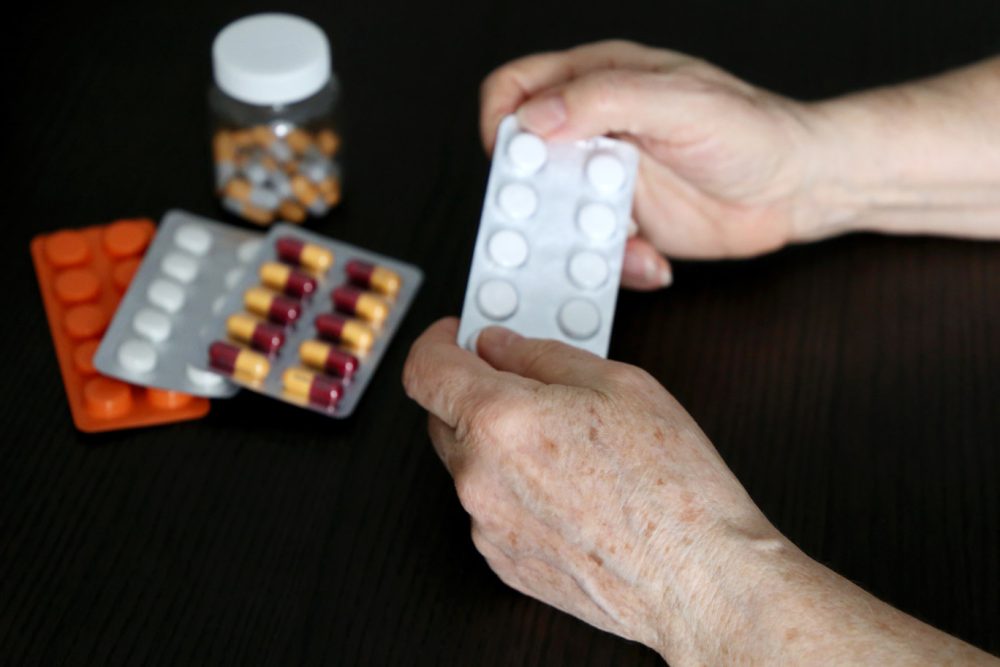Advertisment
More proof that too many medications leads to adversity for older cancer patients

When older adults with cancer take multiple medications — including ordinary drugs like blood pressure pills, supplements, or antacids — it can result in more toxic chemotherapy side effects and even a need to stop cancer treatment, according to new research at the Wilmot Cancer Institute.
The latest study, published in the journal Cancer, provides a cautionary note to both patients and physicians regarding “polypharmacy,” a buzz word describing the concurrent use of multiple medications. It’s extremely common, applying to nearly 92 percent of older adults with cancer.
A key finding: Individuals who had one or more major potential drug interactions also had 59-percent-higher odds of having to stop cancer treatment earlier than recommended.
“It’s possible that polypharmacy affects both the experience and the effectiveness of chemotherapy,” said Erika Ramsdale, M.D., a Wilmot oncologist, geriatrics specialist, data scientist, and senior author of the paper.
Last year, Ramsdale and colleagues published a descriptive study that laid out the scope of the polypharmacy problem and categorized medication issues in a nationwide sample of 718 adults with a mean age of 77 who had stage 3 or 4 cancer and other health conditions. Read more.
In that first study, researchers showed that the majority of the patients had at least one other serious health concern, often cardiovascular disease. Other details included:
- 70 percent were at risk of drug-drug interactions;
- 67 percent were taking at least one drug that was potentially inappropriate;
- 61 percent of the patients were taking five or more medications before starting chemotherapy;
- and nearly 15 percent were taking 10 or more medications.
Both studies suggest that physicians should carefully screen for medication usage and possible drug interactions upon a new patient’s cancer diagnosis.





